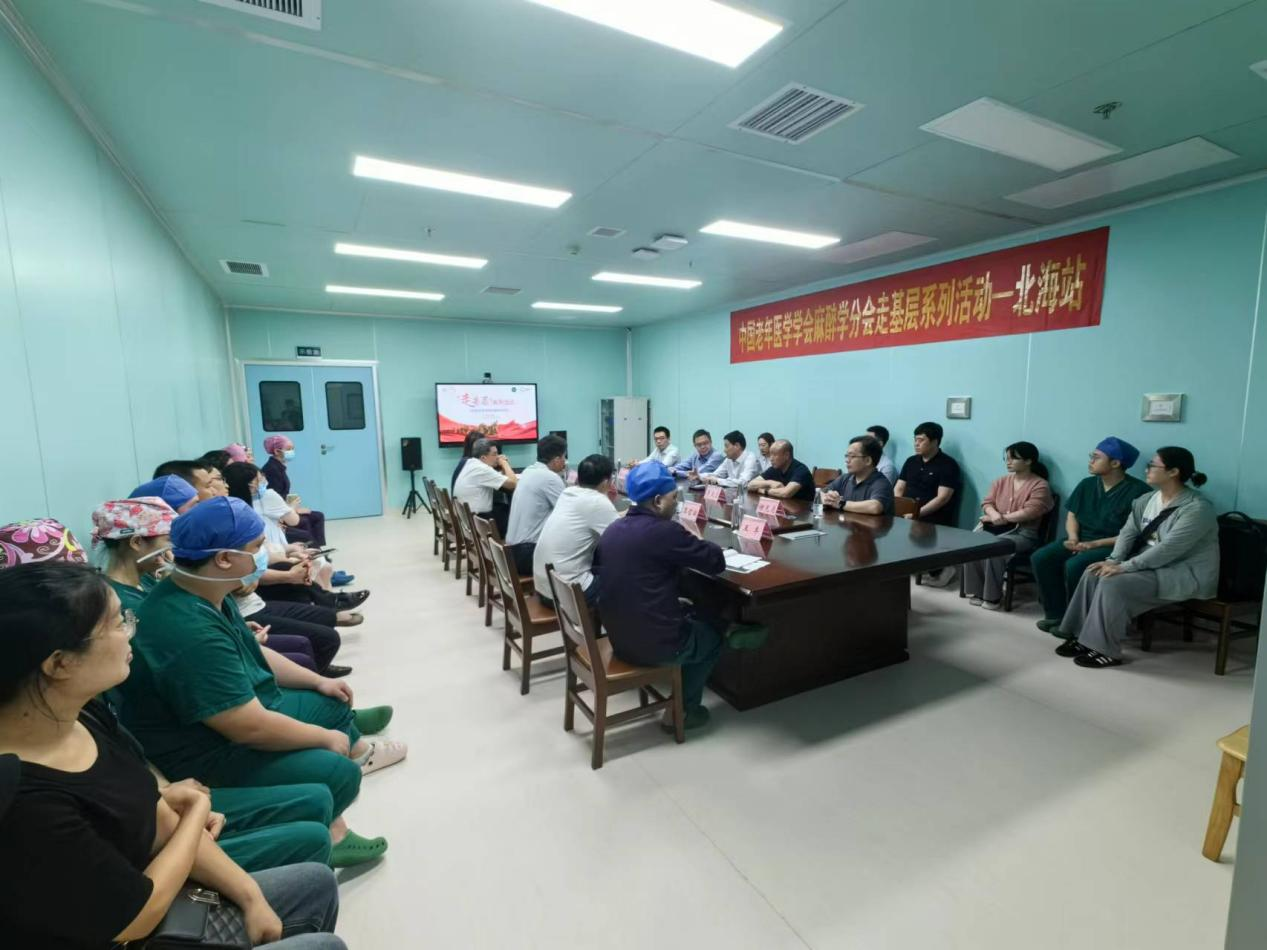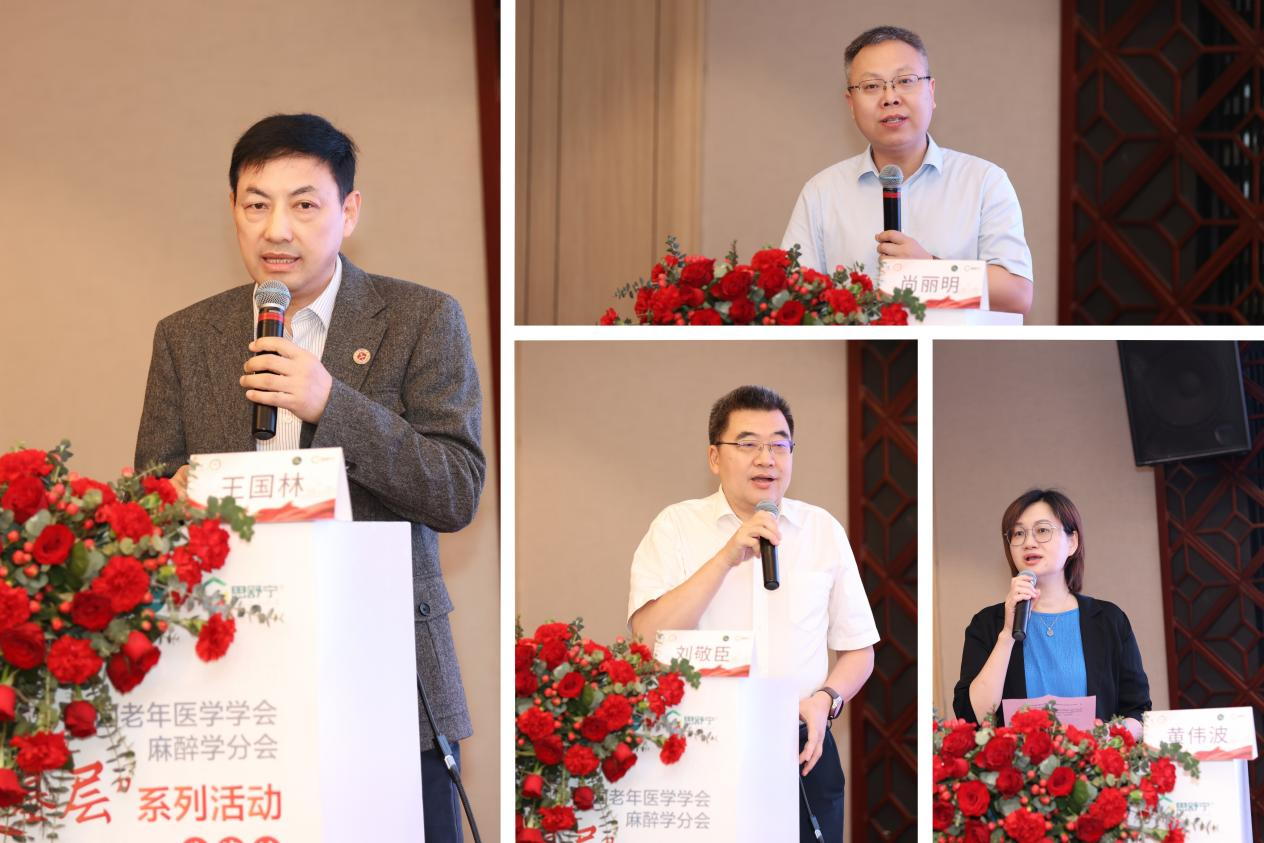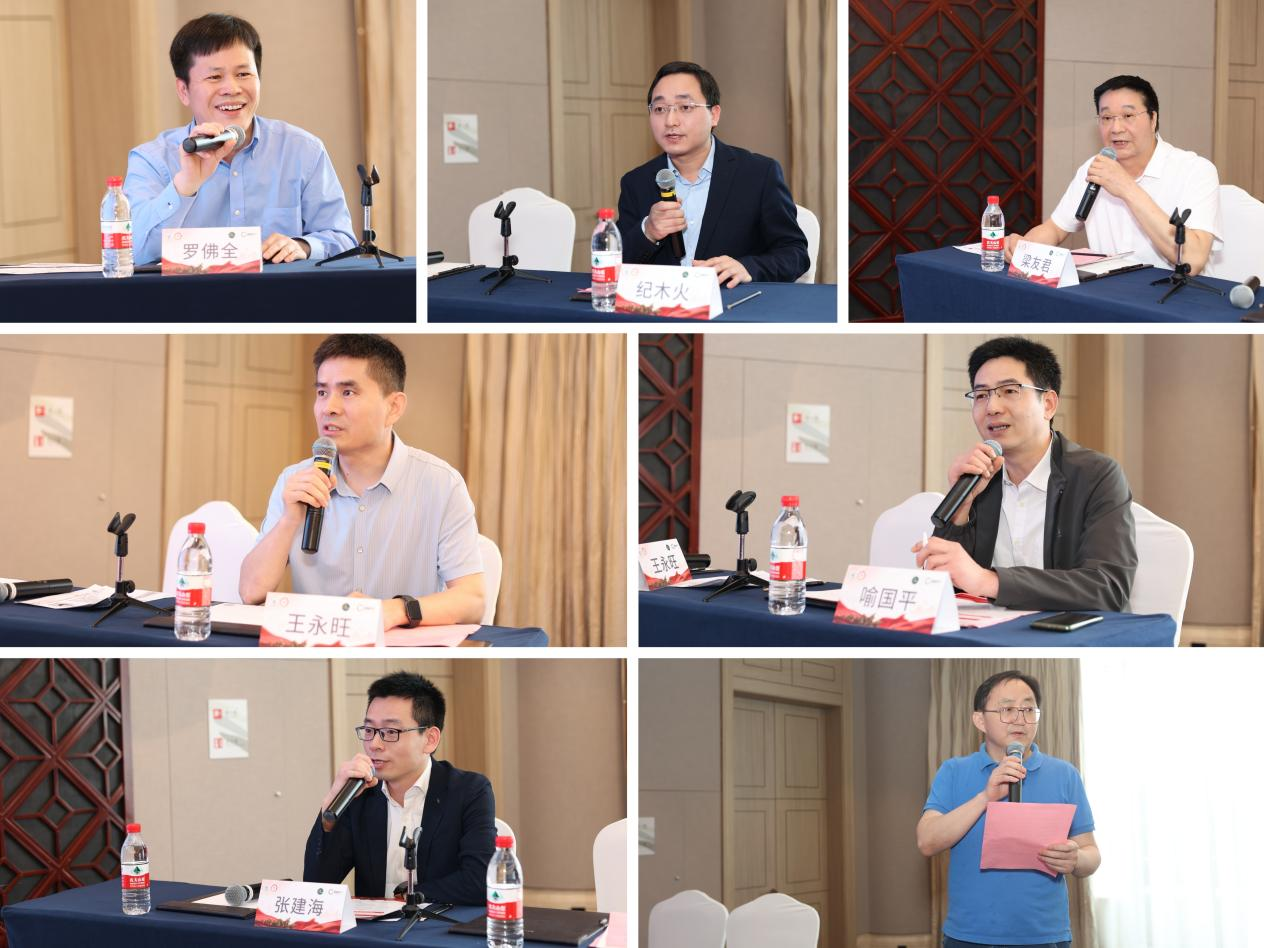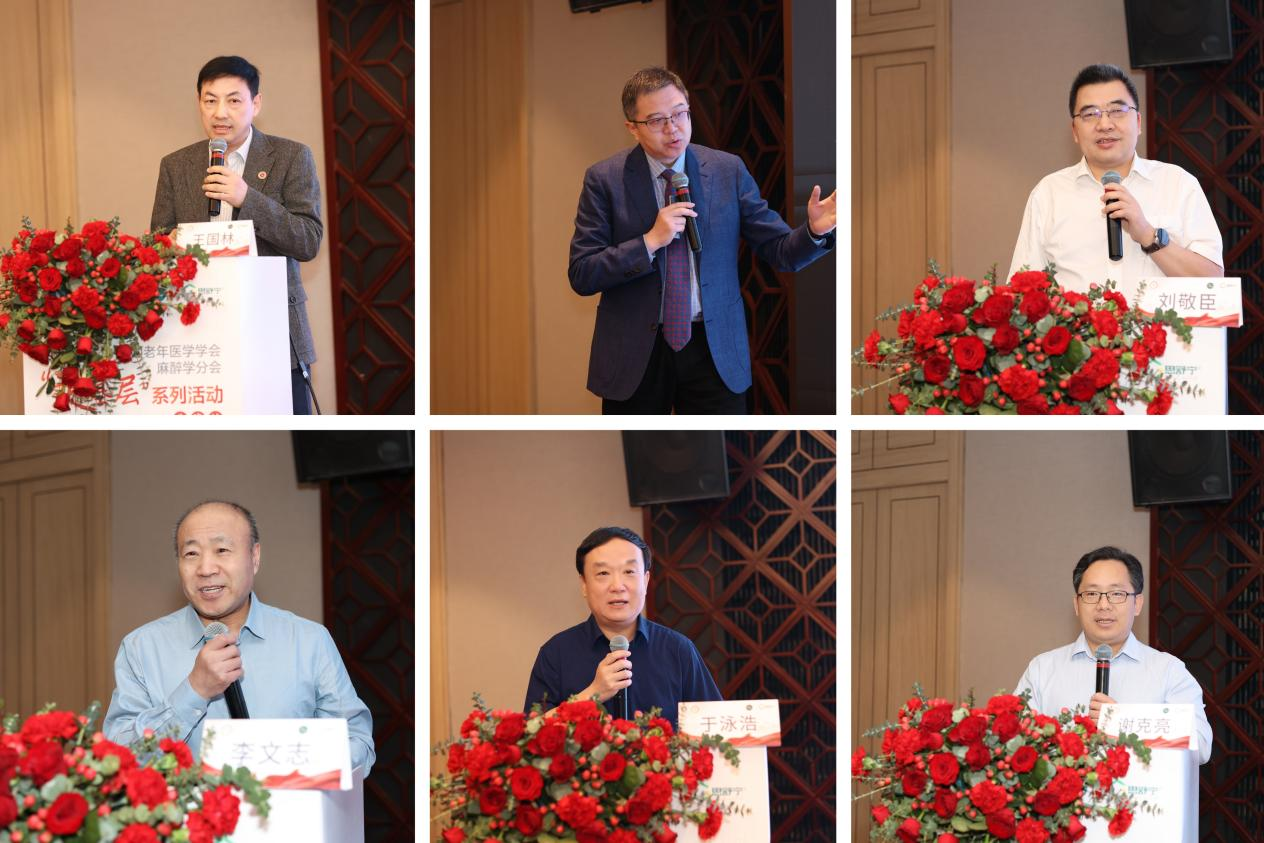Anesthesiology Branch of Chinese Geriatric Society "Go to the Grassroots" Series of Activities-Beihai Station

Beihai City of Guangxi is located in the southwest coast of China, which gave birth to a large number of early organizers of the Party and revolutionary martyrs. During the Anti-Japanese War, Beihai became an important battlefield, and the Beihai people actively participated in the anti-Japanese struggle and made important contributions to the cause of China's Anti-Japanese War. Beihai's red history is an important part of China's modern history, which bears witness to the course of the Chinese people's unremitting struggle for national independence and national prosperity.

The first stop of the series of activities of the Chinese Geriatric Society Anesthesiology Branch "Walking to the grassroots" was held in Beihai City, Guangxi Zhuang Autonomous Region in 2024. The activity was led by Professor Wang Guolin, President of the Chinese Geriatric Society Anesthesiology Branch and General Hospital of Tianjin Medical University, Vice President of the branch Professor Li Wenzhi from the Second Affiliated Hospital of Harbin Medical University, Professor Huang Wenqi from the First Affiliated Hospital of Sun Yat-sen University, Professor Yu Yonghao from the General Hospital of Tianjin Medical University, Professor Liu Jingchen from the First Affiliated Hospital of Guangxi Medical University, Professor Luo Foquan from Zhejiang Provincial People's Hospital, Professor Xie Keliang from the General Hospital of Tianjin Medical University, Professor Wang Yongwang from the Affiliated Hospital of Guilin Medical College, Professor Zhang Jianhai from the First People's Hospital Affiliated to Shanghai Jiaotong University, and Professor Ji Muhuo from the Second Affiliated Hospital of Nanjing Medical University participated in this activity.
-- Go deep into the grassroots and improve the professional level of anesthesiologists --
In the afternoon of March 29, Beihai People's Hospital department guidance session, Professor Wang Guolin, Professor Li Wenzhi, Professor Huang Wenqi, Professor Liu Jingchen, Professor Xie Keliang, Professor Wang Yongwang, Professor Zhang Jianhai and other experts participated in the in-depth guidance. Professor Huang Weibo, Director of the Department of Anesthesiology of Beihai People's Hospital, made a detailed introduction to the hospital and the department, including personnel structure, equipment configuration, department construction and scientific research status. The experts expressed great recognition of the current development of the department, and put forward valuable suggestions on the discipline development, talent introduction, department construction and scientific research direction based on their own experience. They pointed out that the biggest problem facing Beihai City at present is the shortage of anesthesiologists, and some hospitals have failed to introduce anesthesiologists in 10 years, emphasizing that attention should be paid to the development of new technologies in the department. Ensure that they have core technology and do a good job of publicity, enhance the influence of the discipline, and improve the attractiveness of talents. The on-site medical staff cherished the opportunity of face-to-face communication and actively proposed the problems they encountered in the clinical process. The experts also gave detailed answers to the questions raised for the frontline clinicians to preach and dispel doubts.


-- Building a platform to promote the high-quality development of grassroots anesthesia --

On the morning of March 30, there were about 120 anesthesiologists in Beihai, including more than 80 anesthesiologists from 9 hospitals who actively participated in the training. Mr. Huang Weibo, Director of Anesthesiology Department of Beihai City People's Hospital, presided over the opening ceremony, and Prof. Shang Liming, President of Beihai City People's Hospital, Prof. Liu Jingchen, Standing Committee member of Beihai City People's Hospital, and Prof. Wang Guolin, President of Beihai City People's Hospital, addressed the conference respectively. Professor Shang Liming introduced that Beihai People's Hospital can be traced back to 1886, the hundred-year history of the development process is inseparable from the support of experts from all walks of life, the trust given by the Anesthesiology branch of the Chinese Geriatrics Society, Beihai as one of the "grassroots" series of activities held, the organization of the country's top experts to Beihai to deliver treasure, to help the construction of healthy Beihai expressed gratitude. Professor Liu Jingchen expressed his gratitude to the excellent expert team led by President Wang Guolin for their support and help to the anesthesia work in Guangxi, believing that this event can accelerate the improvement of the anesthesia medical service capacity in Beihai City. Professor Wang Guolin said that China has entered a deeply aging society, and the operation of elderly and super-elderly patients is increasing, which poses a great challenge to the management of perioperative anesthesia. And I hope that anesthesiologists who participate in this activity can effectively learn something, learn something, apply new ideas and new methods to perioperative management, effectively improve the level of perioperative anesthesia management, and ensure patient safety.

Member Luo Fuquan, Director of Anesthesiology Department of Zhejiang Provincial People's Hospital, Member Ji Mu Huo, Director of Anesthesiology Department of the Second Affiliated Hospital of Nanjing Medical University, Director Liang Youjun, Director of anesthesiology Department of the First People's Hospital of Qinzhou City, Member of the Chapter Member Wang Yongwang, Director of Anesthesiology Department of the Affiliated Hospital of Guilin Medical College, Director Yu Guoping, Director of anesthesiology Department of the Second People's Hospital of Beihai City, Zhang Jianhai, Deputy director of the pain Department and Medical Department of the First People's Hospital Affiliated to Shanghai Jiao Tong University School of Medicine, and Li Zhemin, director of the pain Department and anesthesiology department of Beihai People's Hospital, co-chaired the academic sharing session.

Prof. Wang Guolin, Prof. Li Wenzhi, Prof. Huang Wenqi, Prof. Yu Yonghao, Prof. Liu Jingchen, Prof. Xie Keliang made in-depth analysis on the perioperative management and organ protection of elderly patients in hospitals, and comfortable medical treatment outside the operating room. They have made "Opportunities and challenges facing Anesthesiology under the Background of aging Society", "Suggestions for Improving the overall level of primary anesthesiology", "Discussion on the efficacy of high-quality anesthesia and academic innovation", "Selection of intravenous anesthesia drugs in comfort Medicine" and "Bone cement implantation Syndrome". The wonderful thematic sharing of Deadly Giant embolus and AICU Construction from the Perspective of Critical Care Medicine brought an academic feast to the youth anesthesia backbone of Beihai City.

In the book gift process, Professor Wang Guolin presented the "National Senior Health Professional Technical Qualification Examination Guidance Anesthesiology" and "National Senior Health Professional Technical Qualification Examination Exercise Series Anesthesiology Exercise Collection" to the representatives of the anesthesiology department of Beihai Basic Hospital, hoping to contribute to the training of high-level anesthesiology talents in Beihai area.
President Wang Guolin said that the grassroots activity carried out during the Chinese Anesthesia Week in 2024 is a practical action of the Anesthesiology Branch of the Chinese Geriatric Society to follow the Party's policies and guidelines, accelerate the development of new quality productivity of anesthesia, promote the high-quality development of grassroots disciplines, improve the clinical diagnosis and treatment level of grassroots medical institutions, and accelerate the training of grassroots health personnel to benefit more patients. In the future, the branch will continue to carry out the series of grassroots activities, make due contributions to promoting the homogenization and improvement of national medical diagnosis and treatment, and contribute to the construction of healthy China.

